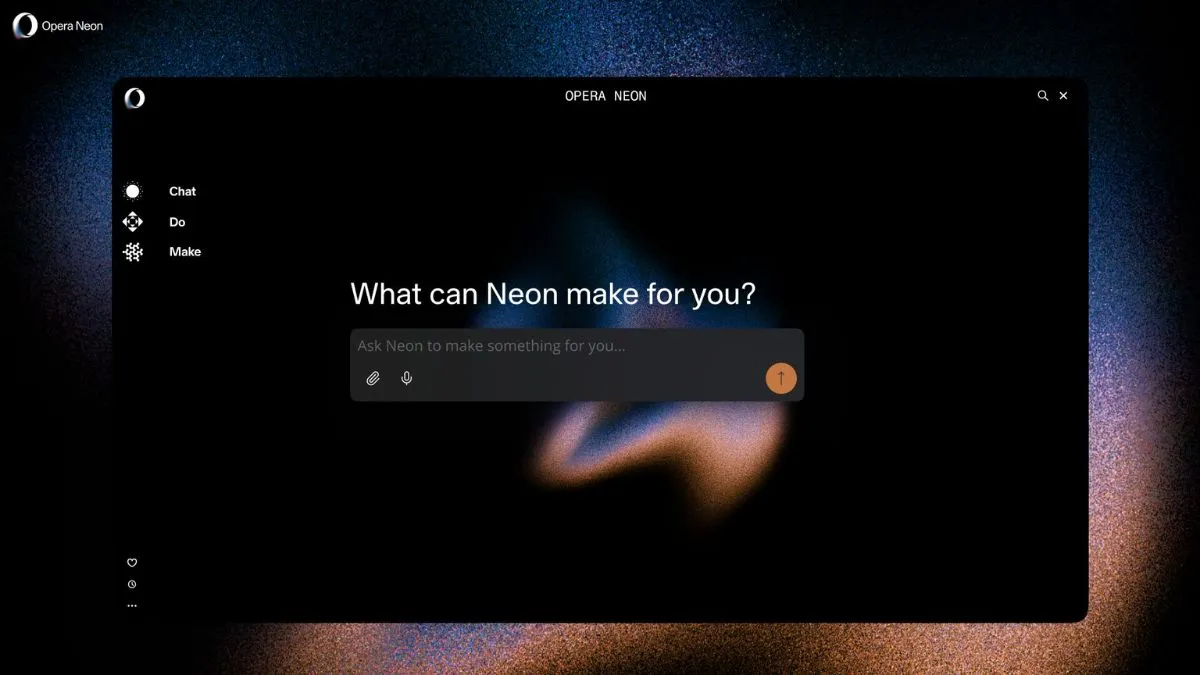- By Prateek Levi
- Wed, 01 Oct 2025 01:27 PM (IST)
- Source:JND
Opera has introduced Neon, an AI-first browser designed to turn “agentic browsing” into a practical reality rather than a buzzword. The browser, now available through invite-only access at $19.99 a month, is aimed at people who already rely on AI as part of their daily routine.
“We built Opera Neon for ourselves—and for everyone who uses AI extensively in their day-to-day,” said Krystian Kolondra, EVP of Browsers at Opera. “Today, we’re welcoming the first users who will help shape the future of agentic browsing with us.”
ALSO READ: OpenAI Launches Sora, An AI Video Social App To Rival TikTok And Instagram
At its core, Neon comes with a built-in AI chatbot, but Opera is positioning it as much more than that. The centrepiece is Neon Do, a feature that works like a digital assistant layered on the browser. It can summarise a Substack article and send it directly into Slack or recall details from a YouTube video you watched days ago. By integrating with browsing history, Opera wants Neon to function less like a search engine and more like a memory-enhanced aide.
Another notable capability is automatic code generation. Neon can produce code snippets that generate tables, charts, and even visual reports. Opera has hinted that users may eventually be able to create lightweight, app-style tools, though it’s not confirmed if sharing will be available at launch.
The most ambitious feature is Cards—Opera’s system for reusable AI workflows. Similar to The Browser Company’s “Skills” in Dia, Cards let users save and combine prompts to build mini-apps. For example, pairing “pull-details” with “comparison-table” could deliver a product comparison in seconds. Users can design their own cards or access community-made ones, making Neon a kind of IFTTT playground for AI.
To address the problem of endless browser tabs, Neon also introduces Tasks, a workspace tool that groups together tabs and AI chats into tidy, self-contained projects. This feature borrows inspiration from Arc’s Spaces and Chrome’s Tab Groups but adds an AI-driven layer of context management.
ALSO READ: WhatsApp Rolls Out Live Photos, AI Chat Themes, and More New Features
With Neon, Opera is stepping into the same space as Perplexity and The Browser Company, all of whom are chasing the promise of an “agentic browser”—one that doesn’t just display websites but actively helps users take action. The question is whether people will be willing to spend $20 a month for that vision.
